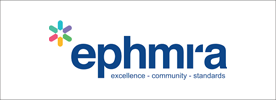
In recent years, the healthcare industry has undergone rapid and substantial transformation, largely driven by advances in technology and an increasing emphasis on individual patient care. This shift towards personalised medicine is changing how treatment and prevention is approached, moving away from the traditional one-size-fits-all model to more tailored, precise interventions. Personalised medicine holds immense promise for improving patient outcomes and offers exciting opportunities for market research in the healthcare sector.
Understanding Personalised Medicine
Personalised medicine is an approach to healthcare that customises medical treatment to the individual characteristics of each patient. This customisation is based on an understanding of the patient’s genetic makeup, environmental factors, and lifestyle. The aim is to provide the right treatment to the right patient at the right time, thereby enhancing the effectiveness of therapies and minimising adverse effects.
Among other things, advancements in biotechnology and data analytics have been key players in the rise of personalised medicine. For example, the new DNA sequencing technologies enable an individual’s genetic code to be mapped out which can help predict the risk of certain diseases so that the best treatments and personalised prevention plans can be implemented.
The Role of Market Research in Personalised Medicine
Market research is significant when it comes to the development and implementation of personalised medicine. It helps stakeholders understand the evolving needs and preferences of patients, healthcare providers, and payers. By gathering and analysing data, market research provides insights into the potential demand for personalised treatments, identifies barriers to adoption, and informs strategic decision-making.
Identifying Patient Needs and Preferences
One of the biggest roles of market research in personalised medicine is to identify patient needs and preferences. Researchers can gather valuable information about what patients expect from personalised treatments through surveys, focus groups, and patient interviews. This data is essential for developing therapies that address the medical condition and align with patient expectations and lifestyles.
For instance, patients with chronic conditions may prioritise treatments that offer convenience and minimal disruption to their daily lives. Understanding these preferences allows pharmaceutical companies to design drug delivery systems and treatment plans that enhance patient adherence and satisfaction.
Assessing Market Potential
Market research is instrumental in assessing the market potential for personalised therapies. By analysing demographic data, disease prevalence, and treatment patterns, researchers can estimate the size of the target population for specific personalised treatments. This helps pharmaceutical companies and healthcare providers make informed decisions about resource allocation, pricing strategies, and market entry.
Additionally, market research can identify unmet needs and emerging trends in healthcare. For example, the increasing prevalence of genetic testing and wearable health devices indicates a growing interest in personalised health insights. Companies can leverage this to develop products and services catering to health-conscious consumers' evolving demands.
Overcoming Barriers to Adoption
Despite its promise, personalised medicine faces several barriers to widespread adoption. Market research can help identify and address these challenges. For instance, cost is a significant barrier, as personalised treatments and genetic testing can be expensive. By conducting cost-benefit analyses and gathering data on patient willingness to pay, market researchers can help develop pricing models that make it more accessible.
Market research can also uncover regulatory and reimbursement hurdles that may impede the adoption of personalised therapies. Understanding the perspectives of regulatory authorities and payers allows companies to develop strategies that align with existing frameworks and advocate for necessary policy changes.
Enhancing Patient and Provider Education
Effective communication is vital for the success of personalised medicine. Market research can inform the development of educational materials and campaigns that enhance patient and provider understanding of customised treatments. Researchers can create targeted messaging emphasising personalised medicine's benefits and safety by identifying knowledge gaps and misconceptions.
For healthcare providers, market research can reveal the need for training and support in integrating personalised treatments into clinical practice. Tailored educational programs can help providers make informed decisions and confidently recommend personalised therapies to their patients.
The Future of Market Research in Personalised Medicine
As personalised medicine continues to evolve, so too with the methods and approaches used in market research. The integration of big data analytics, artificial intelligence, and machine learning will enable more analyses and predictive modelling. These technologies can uncover hidden patterns and correlations in vast datasets, providing deeper insights into patient behaviour and treatment outcomes.
Real-time data collection through digital health platforms and wearable devices will enhance the granularity and timeliness of market research. Continuous monitoring of patient health metrics and treatment responses will enable dynamic adjustments to personalised treatment plans, improving overall effectiveness.
Are you interested in learning more?





